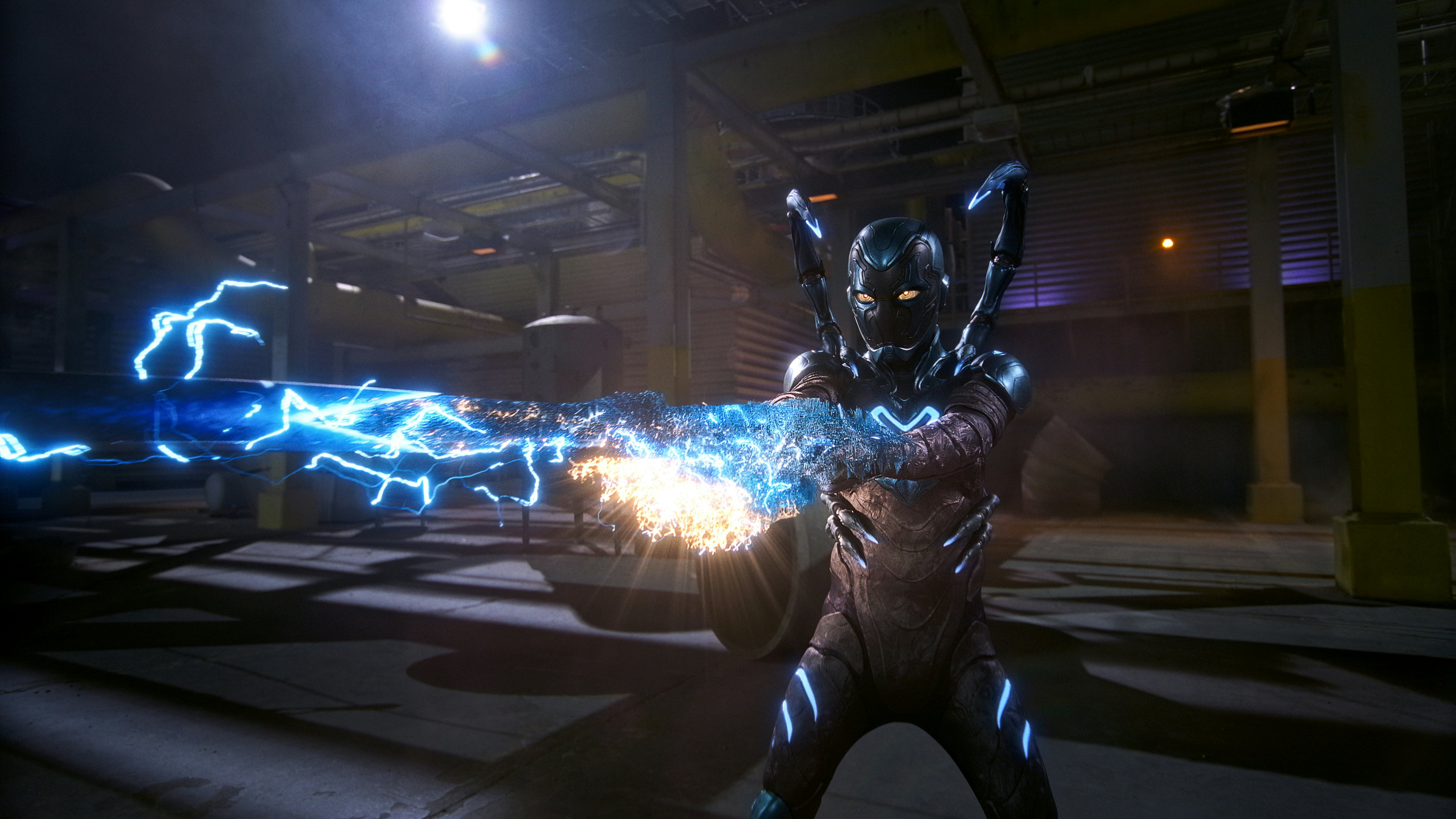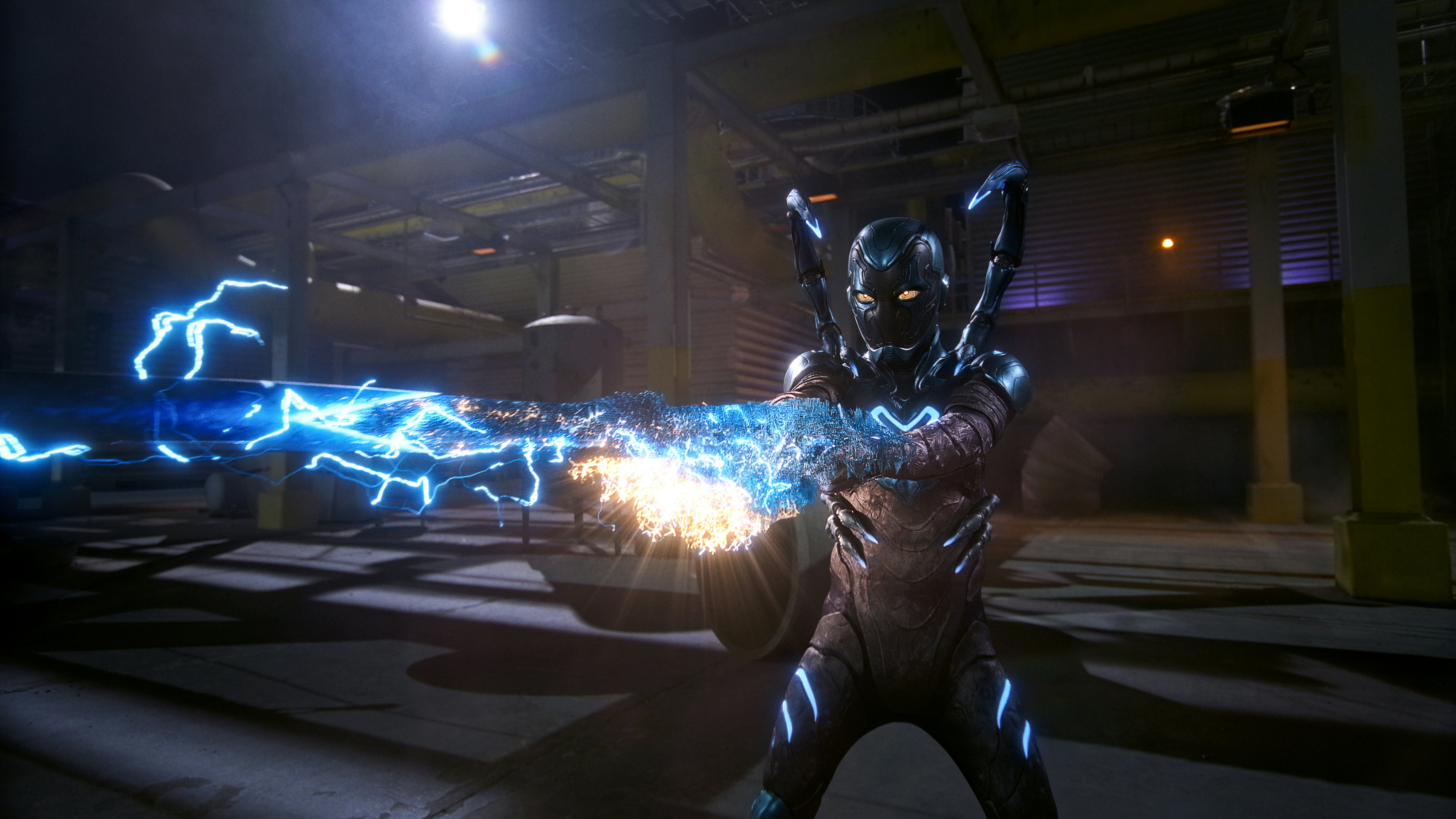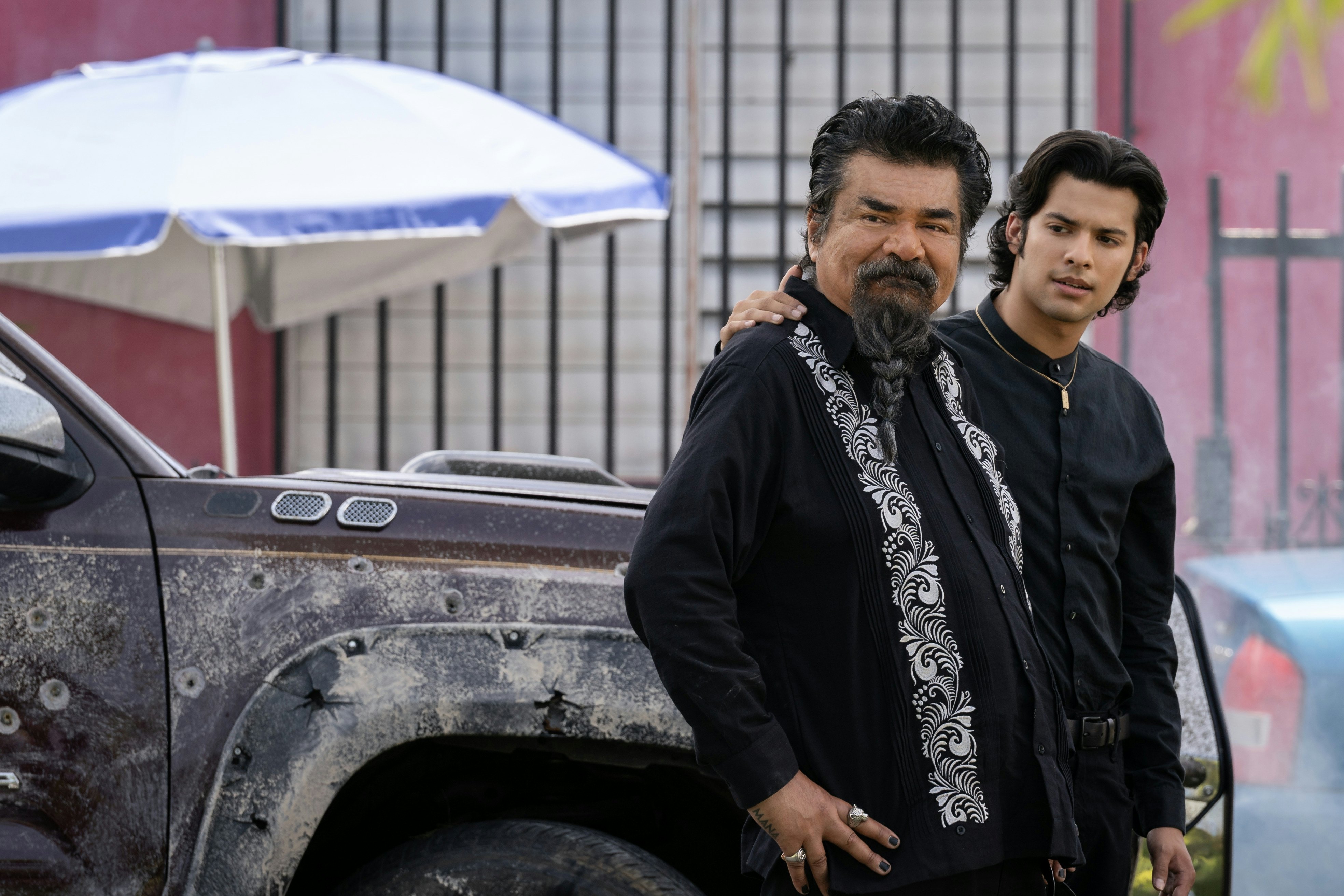
In a lot of ways, Blue Beetle isn’t like any other comic book movie that’s ever been made. Not only is it the first live-action superhero movie featuring a Latino lead, but its emphasis on its hero’s Latino roots makes it one of the few comic book blockbusters with a specific cultural perspective. On top of all of that, Blue Beetle makes the family members of its hero more important than is typical of the superhero genre, which only makes the good intentions of its makers all the more palpable.
These various elements give Blue Beetle plenty of heart and charm, but they’re not enough to prevent the film from being squashed beneath the weight of its genre’s formulaic, tired demands. As fresh and groundbreaking as its perspective may be, the DC Cinematic Universe film remains trapped by its familiar structure, one that forces it to hit nearly all of the same beats at the exact same moments as so many of other comic book films.
Nowhere is that more clear than in the movie’s third act, which succumbs to many of the problems that have been plaguing the superhero genre for years.
Heads up: Spoilers for the ending of Blue Beetle ahead!
Blue Beetle’s ending, explained

At the end of Blue Beetle, Jaime Reyes (Xolo Maridueña) ends up imprisoned at the secret lair of the villainous Victoria Kord (Susan Sarandon), whose obsession with acquiring the code for Jaime’s alien super suit manifests itself in her callous disregard for his life. Victoria succeeds in stealing his suit’s code, too, which she uses to power up her go-to henchman, Conrad Carapax (Raoul Max Trujillo). Before Victoria and Carapax are able to succeed in killing Jamie, however, his loved ones arrive at Victoria’s island compound and successfully take down some of her defenses using the 1980s Blue Beetle tech created by Jenny Kord’s (Bruna Marquezine) still-missing father, Ted.
What follows is a showdown between the Reyes and Kord factions. Unfortunately, while the film’s final set piece packs in a few humorous and inventive moments (watching Adriana Barraza’s Nana scream “Death to the imperialists!” as she mows down a bunch of guards is just as great as it sounds), it devolves into the same kind of shots of CGI models punching each other really hard that moviegoers have already seen in so many other superhero movies. Jaime and Carapax’s climactic showdown is simply never as thrilling as director Ángel Manuel Soto wants it to be.
As admirable as Blue Beetle’s efforts to humanize its villain are, its last-minute flashback to his past also feels awkwardly jammed into a sequence that doesn’t have room for it. Jaime’s decision to spare Carapax’s life, which leads to the latter killing himself and Sarandon’s Victoria in one fell swoop, isn’t as impactful as it should be, either. Victoria and Carapax’s motivations were never communicated clearly enough for their fates to pack any kind of punch, so their deaths only further emphasize the flatness of their characters.
In the end, too many of Blue Beetle’s central figures get lost in the chaos of its final act. Even worse, the violence of its finale feels incongruous with the warmth of so many of its quieter, family-driven moments. As a result, the film feels unsatisfying — torn between the humanity of its characters’ familial lives and the overblown action of its comic book elements. Try as it might, it never manages to make the two sides of itself truly gel together.

In the wake of Victoria Kord’s death, Blue Beetle finds Marquezine’s Jenny officially in charge of Kord Industries and the Reyes family tasked with rebuilding their home. Fortunately for them, they don’t have to do it alone. Not only does Blue Beetle’s finale see the Reyes’ neighbors arrive to help them rebuild and mourn the death of Jaime’s father, Alberto (Damián Alcázar), but Jenny also returns to reveal that Kord Industries has pledged to undo the damage it's done to the Reyes family and their community. Jenny even surprises Jaime’s uncle, Rudy (George Lopez), with a new truck.
The final moments of Blue Beetle subsequently follow Jaime and Jenny as they share their first, long-awaited kiss before taking off to the skies together. On the one hand, it’s a conclusion that uses Jenny’s promotion as an excuse to place an uncharacteristic amount of faith in the corporate American system. On the other hand, Blue Beetle’s conclusion gives the Reyes family the happy ending they deserve, which makes it hard to begrudge the film for its last-minute miscalculations.
Ultimately, Blue Beetle’s conclusion paves the road for a brighter future for its eponymous hero. Should he ever return to the big screen, here’s to hoping he’ll get to do so in a film that feels freer to experiment beyond the superhero genre’s increasingly clear limitations.
Blue Beetle is now playing in theaters nationwide.







